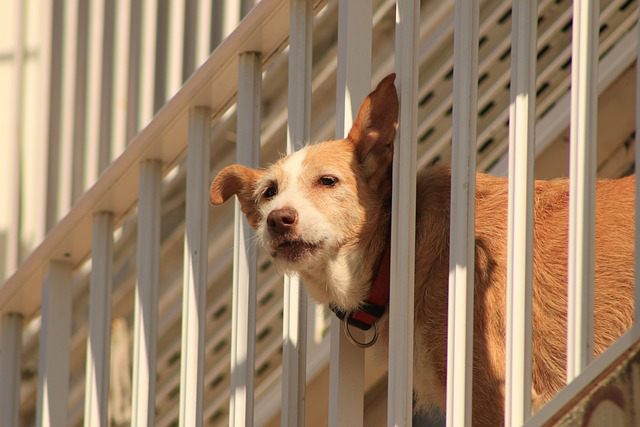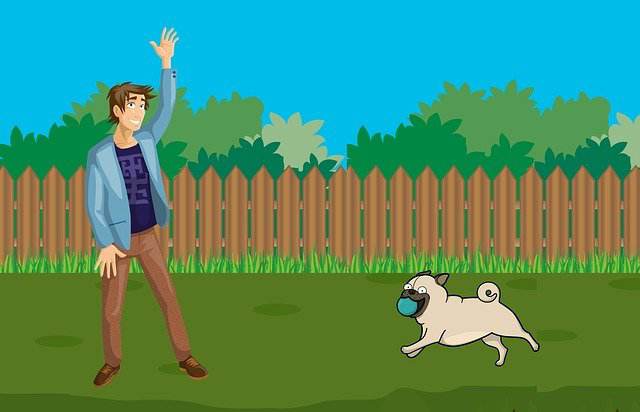Do Dachshunds Bark A Lot: Tips & 13 Reasons Dachshunds Bark

As the smallest of the hound’s family members, people always ask why do dachshunds bark a lot? Let’s take a look together!
Remember, hounds are bred to be vocal because of their primary purpose of hunting, after training these barking traits are reduced.
In this post, we will outline and discuss some common reasons why dachshunds may decide to bark or some bark triggers.
We will also discuss how to control excessive barking, but first, let me answer your question do Dachshunds bark a lot before we continue!
Do Dachshunds Bark A Lot
Dachshunds were developed to be hunting dogs, and they bark like all other hunting dogs, they routinely bark at anybody they see as a threat, which might include family members, other animals, or even friends.
Without proper training, dachshunds can be very territorial and protective of their territory, which can result in excessive barking.
Despite their image as a placid breed, Dachshunds can bark excessively for a variety of reasons, including fear, discomfort, anxiety, pain, seeking attention, and warning the owner of an approaching stranger.
A well-socialized and trained dachshund will not bark just to bark; there must be a reason for their barking. Excessive barking is one of the most common Dachshund behavior problems.
Causes of excessive barking in dachshunds
Some of the most common reasons dachshunds bark to communicate are as follows:
1. Nature of the breed
Dachshunds were selectively bred to be hunting dogs in the past, which means they bark more than other dogs that were selectively bred to be human companions.
During hunting sessions, dachshunds use barking to communicate their location to other pack members or their human owners.
As time goes by, these breed has been bred to become pet dogs, but this barking traits is reduced even though you can still see them bark.
Therefore, it is in the nature of dachshunds to bark as hunting dogs.
2. Separation anxiety
Separation anxiety in dachshunds is a behavioral problem that develops when a dog is isolated from his or her owner for an extended length of time.
Within minutes of their owners leaving them at home, Dachshunds might develop separation anxiety and begin barking nonstop.
One of the most common problems among dachshund owners is separation anxiety, which is often caused by a lack of basic training and care.
Separation anxiety makes dachshunds aggressive toward other dogs or humans and leads them to bark excessively.
Because of insufficient or poor socialization, your dachshund may be continuously barking at humans, cats, other dogs, or pets.
Because dachshund owners sometimes complain about excessive barking and crying, you should begin socializing your puppy straight soon.
If you want to reduce the amount of barking, you must teach your dachshund not to consider other dogs or pets in his or her area as a threat.
Teach this from the time your dachshund is a puppy to reduce the possibility of your dachshund barking excessively as a result of poor socialization.
4. Excitement
When dachshunds hear their family members return home, they bark constantly. This is a good sign that they are pleased to see you again.
When getting ready or departing for an exercise, you’ll hear his or her eager bark as a form of anticipation for the action.
When following a toy or ball, Dachshunds are noted for barking loudly to demonstrate their excitement.
A dachshund, for example, would bark and leap over the fence to see whether the other dogs want to play with him.
Dachshunds love to bark, and it’s a great way to interact with them.
Dachshunds show their excitement by barking at anything that makes them happy.
5. Seeking attention
When a dog, especially a little breed such as the dachshund, wants to be noticed or needs attention from its owner, it may bark or cry until it gets it.
Remember, they were created to be companion dogs that spend the majority of their time with their owners.
As a result, they rely on their owners for everything, including affection, food, water, and medical care.
If you aren’t cautious, your lovely little puppy will develop into a deadly beast that will bark, hack, and lunge at you.
If dachshunds are on a regular schedule, they should not begin barking excessively when they want assistance.
6. Side effect of long-term treatment
As a side effect of long-term medication that leads canines to become unstable, dachshunds may bark incessantly.
Keep in touch with your veterinarian and ask him or her all of your dachshund’s health-related questions instead of taking pharmacological advice from non-professionals.
An adverse drug side effect might make your dachshund aggressive, leading to uncomfortable situations.
Check to discover whether the medication you’re giving your dachshund has any negative side effects.
Do not utilize over-the-counter drugs or treatments unless your veterinarian has granted you permission.
7. Traumatic experiences
Traumatic events in dachshunds are real, and they’re one of the most common causes of excessive barking.
As a result of earlier trauma, rescue dogs suffer from anxiety or post-traumatic stress disorder (PTSD), according to AKC.
Any dachshund that has previously been exposed to trauma is at risk of developing behavioral issues such as barking.
Emotional issues are more likely in dachshunds that have been raised in an aggressive or harsh setting.
They become fearful, hostile, or even excessively bark as a conditioned self-protective reflex.
8. Continues frustration
When a dachshund feels dissatisfied, various factors contribute to his high level of hostility and loud barking.
Unnecessary barking can be caused by paying less attention than usual, ignoring the dog, disturbing the dog’s eating patterns, and so on.
Frustrated dachshunds are more likely to do unexpected things, so try to keep your dachshund happy at all times.
To cope with a grumpy dachshund, you must first determine the root of the problem and eliminate it as soon as possible.
Don’t ignore the dachshund when it wants your attention. Check to check whether your dachshund is in any distress.
9. Unwanted animals in the area
As previously said, Dachshunds are not the finest security dogs, but they do make excellent watchdogs and will notify you if a stranger approaches.
Expect your dachshund to bark if you have a guest; this is normal dachshund behavior.
You could believe your dachshund barks a lot if you live in a crowded city or in a region with a lot of strangers; nevertheless, good socialization is the only way to avoid this.
If you do not properly train and socialize your dog, you will be treated to these barks on a regular basis!
10. Fear
Fear is a common cause of excessive dachshund barking, which is frequently linked to a lack of socialization.
Dachshunds are little dogs who, if not socialized properly, are always terrified of objects or pets larger than themselves.
The following are some of the most prevalent causes of fear in dachshunds: Thunder, gunshots, fireworks, and a cloak of darkness engulfed the area.
All of the foregoing enrages a dachshund, who will bark ceaselessly until the problem is resolved.
Attempting to socialize your dachshund with humans and other sounds is beneficial and can prevent dachshunds from barking excessively.
11. Chronic pains or illnesses
Remember how we stated dachshunds are known for barking, but that this might alter if they’re hurt or in pain?
So, persistent discomfort and illness are two factors that may cause your dachshund to bark excessively; however, you may avoid this by scheduling regular medical exams.
If your dachshund begins to bark unnecessarily, immediately seek for symptoms of discomfort or illness.
When a dachshund is in discomfort or injured, he will bark to relieve himself, so keep an eye on him if he begins to bark excessively.
12. Just to protect themselves
Dogs may bark at people instead of other dogs or deter outsiders from approaching their owners or them.
Outsiders may prompt a dachshund to bark in order to alert its owner, much as dogs do to each other.
Dachshunds are always looking for other dogs to play with. Dogs can’t help but bark at each other.
Strangers will make dachshunds bark so that other dogs are aware of their presence.
Their diminutive stature constantly frightens them, causing them to bark ceaselessly. They feel this is a form of self-defense.
13. Out of boredom
Dachshunds are gregarious canines that flourish when they are around people. They may begin to bark if they are bored.
When left alone for long periods of time, they get uneasy and may bark to express their dissatisfaction.
Imagine being at home all day and doing nothing. Boredom affects dachshunds in the same way it affects humans.
How to control excessive barking in dachshunds
Here are some common ways to train or control a dachshund to stop barking excessively:
1. Ignore unnecessary barking
Screaming or yelling at your dachshund to stop barking all the time sends the incorrect message, and your dachshund will continue to bark.
The cornerstones of dachshund training are tranquility, love, compassion, and trust. This is something you and your dachshund should keep in mind at all times.
If you remain cool whenever your dachshund barks excessively, he or she will stop barking.
When your dachshund barks excessively, it’s never a good idea to shout at him; instead, try not to pay attention when he barks excessively.
Try to associate barking with a bad habit so that your dachshund will only bark when absolutely necessary, rather than when it isn’t.
2. Desensitization of dachshund
Things that bother your dachshund or cause him to bark unnecessarily should always be removed or exposed to him.
If your dachshund grows concerned when he sees the mailman, for example, contact the mailman and introduce him to your dachshund.
As a consequence, your dachshund will recognize that the mailman is not a threat and will be at peace with him.
Use the same method for anything else that can trigger your dachshund to bark excessively.
3. Avoid separation anxiety
Getting a second pet may be the most efficient strategy to urge your dachshund to stop barking because dachshunds rely on their owners for attention and fun.
Because dachshunds were created to have a human companion, you should get a second pet for them if you are frequently gone.
While you’re gone, this will keep them occupied, which may help them cope with separation anxiety.
Dachshunds are rarely bored and are unaffected by the presence of other dogs, so consider getting a second companion pet.
4. Provide more mental stimulation activities
Boredom and a sedentary lifestyle cause Dachshunds to bark a lot, so keep them occupied and they won’t bark.
A daily 10-minute walk is ideal, but not in hot weather, since leaving your dog indoors or even playing a short-term extraction game might exhaust his energy.
Take it or leave it: dachshunds have a lot of energy, and if you don’t provide them with a lot of mental stimulation, they’ll bark and do things that aren’t necessary.
Consider a variety of toys to keep your dachshund mentally stimulated.
5. Maintaining a daily schedule
Maintaining a daily plan for your dachshund is a simple method to guarantee that they get the most out of the training and course you’ve chosen for them.
Keeping your dachshund occupied on a daily basis requires giving him something to do at all times.
Stick to what works for you on a daily basis. It’s vital to eat at the appropriate time, play at the appropriate time, sleep at the appropriate time, and so on.
Stop altering your daily routine and the stuff in your home because this might lead to unwanted habits like barking.
6. Socialize your dachshund
The most important advantage of early dachshund socialization is that it instills a sense of calm, confidence, and affection in your dachshund.
When you have a well-socialized dachshund, you have a dog that feels at ease with other dogs and is friendly to strangers.
The following are the most typical methods for socializing your dachshund:
- Take your dachshund to meet other dog owners as much as possible.
- With your dachshund, go to dog shows.
- Visit a dog park with your dachshund.
- It’s a great idea to invite your neighbors who have other pets.
- Bring your dachshund with you to the campground.
- Take your dachshund to puppy classes.
- You can enjoy your favorite TV shows with a dachshund at your side.
- Play dachshund movies on tape for him.
7. Don’t bark back at dachshunds
Never yell at a barking dachshund; the dog will suppose you’re having a good time. Never rebuke a bark with your own censure.
When persuading your dachshund to come to a halt, talk softly but firmly at a consistent volume. Teach your dog what the word “silent” means.
Although Dachshunds are bright dogs, they struggle to understand the command “shut up.”
Rather, teach them the command “quiet” and reward them when they respond by remaining quietly after hearing it.
I hope with the information provided on this page, your question do dachshunds bark a lot was addressed!



![Dog Possessive Of Owner With Other Dogs [Causes & Fixes] Dog Possessive Of Owner With Other Dogs](https://petcreeks.com/wp-content/uploads/2023/02/Dog-Possessive-Of-Owner-With-Other-Dogs-768x555.jpg)


